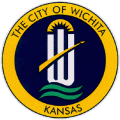Licensed practical nurses are more qualified and have more responsibilities than nursing assistants, but they still work under the authority of registered nurses and doctors. Along with nursing assistants, LPNs provide for their patients' most basic care, helping with everyday needs such as eating and getting dressed. However, unlike nursing assistants, LPNs are also responsible for more technical medical care, such as changing bandages, administering medications, checking vital signs, and monitoring patients' symptoms.
Kansas
We've organized a comprehensive list of Kansas nursing schools. Below you'll find information on specific nursing programs such as LPN certificates and ADN, BSN, and MSN degrees. You'll also find a profile of nursing education and careers in each major Kansas city.
With more Kansas residents able to afford health insurance, the healthcare field is expanding at a rapid pace. This growth provides opportunities for aspiring nurses to launch a new career. Some of the most popular careers in the nursing field are outlined below, along with important data on local salaries and the required level of education.
The metropolitan area of Topeka, Kansas, has more than 6,000 licensed nursing professionals. The vast majority fall into one of three common nursing roles: registered nurse (RN), licensed practical nurse (LPN), and certified nursing assistant (CNA). These healthcare professionals often earned their certificate, diploma, or degree at a local school, like Washburn University or Washburn Institute of Technology.
Healthcare is one of the top industries in Overland Park, Kansas. The metro area is home to thousands of nursing professionals. The most common nursing roles are registered nurse (RN), licensed practical nurse (LPN), and certified nursing assistant (CNA). These professionals work at dozens of local hospitals such as Overland Park Regional Medical Center, Saint Luke’s South Hospital, Shawnee Mission Health, Menorah Medical Center, and Promise Hospital.
There are three basic types of careers within the nursing field: certified nursing assistants (CNAs), licensed practical nurses (LPNs), and registered nurses (RNs). If you are looking to launch a healthcare career in Wichita, one of these positions could suit you well.
CNAs provide for their patients' most basic care, assisting them with everyday needs such as eating, showering, and getting dressed. To become a CNA, you must complete an eight- to ten-week program and pass a certification exam. In Wichita, you could expect to earn around $22,400 per year as a CNA.
In the healthcare field, an advanced degree like a master of science in nursing (MSN) can distinguish you from other highly qualified job candidates. It also enables you to deepen your education and skill set, allowing you to pursue jobs for nursing specializations.
To become a registered nurse (RN), there are two options for pursuing your education: a two-year associate's degree program or a four-year bachelor's degree program. Although associate's degrees are less expensive and take less time, you should know that employers tend to favor more educated applicants. This gives aspiring RNs with bachelor's degrees a significant advantage in the job market over applicants who have only earned associate's degrees.
If you aspire to become a nurse, the fastest way to launch your career is to pursue an associate's degree in nursing (ADN) at a community college or technical school. Usually, associate's degrees take two years to complete for full-time students. Alternatively, many schools also have part-time programs and offer night classes. Although this approach takes longer to complete, taking classes part-time is an excellent option if you are working to put yourself through school. Tuition at community colleges is usually less expensive than at four-year universities.
Licensed practical nurses are more qualified and have more responsibilities than nursing assistants, but they still work under the authority of registered nurses and doctors. Along with nursing assistants, LPNs provide for their patients' most basic care, helping with everyday needs such as eating and getting dressed. However, unlike nursing assistants, LPNs are also responsible for more technical medical care, such as changing bandages, administering medications, checking vital signs, and monitoring patients' symptoms.
If you’re interested in pursuing a career in nursing, earning a bachelor’s degree will best set you up for success. Employers in Kansas, such as the Department of Veterans Affairs, Newton Medical Center, and KVC Health Systems, are always looking for registered nurses with an extensive education. One of the best places to work towards a bachelor’s degree in nursing is a public college or university. These institutions offer all the benefits of a four-year college education while costing less than private schools.
If you’re looking for a quality education with a high degree of personal attention, then you should consider applying to a private college or university for your nursing degree. Kansas has a variety of private schools with reputable nursing programs, including Baker University in Baldwin City, Bethel College in North Newton, Newman University in Wichita, and many others.










